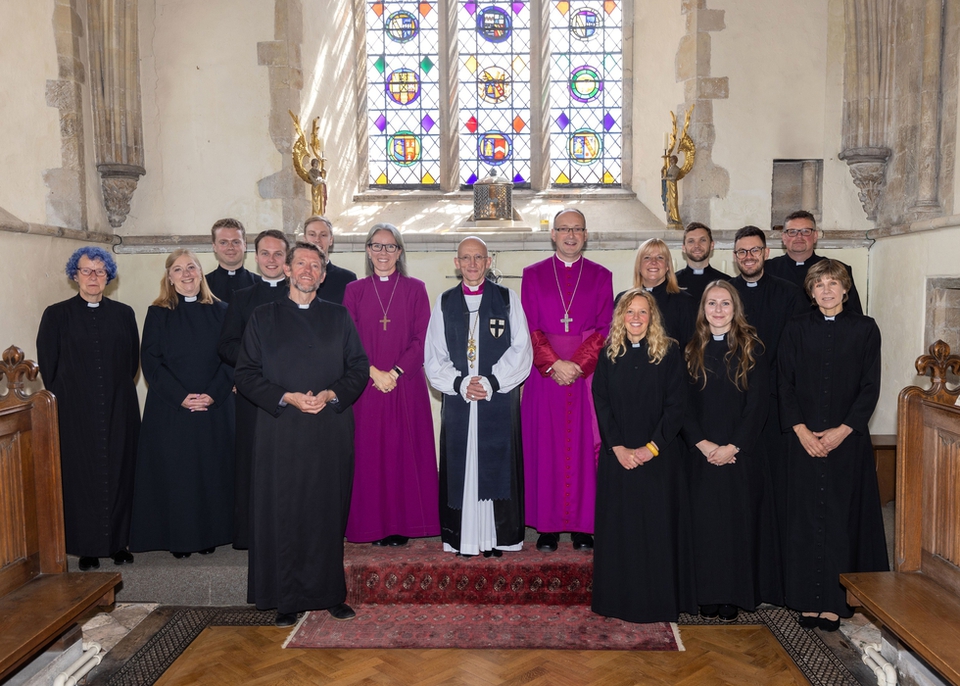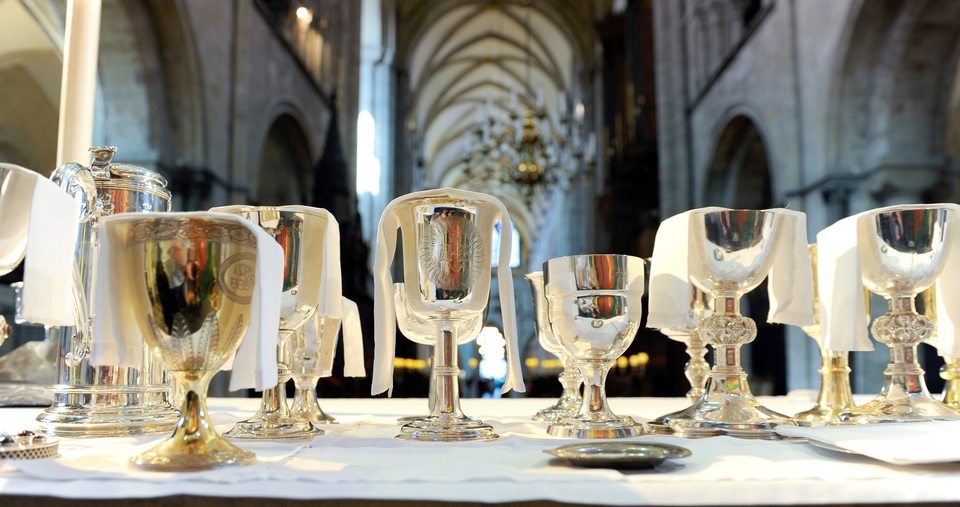Explore


All Christians are called by Jesus Christ to be his followers and to serve him in many different ways. Some people are called to ordained ministry as a deacon or priest. This is a particular calling to be set apart and to be given authority by the Church for a sacramental and functional leadership role of service.
Why does the Church have an ordained ministry?
The ordained ministry is Christ’s gift to his Church. In their life and ministry, bishops, priests and deacons are called to speak in Christ’s name and build up the Church of which he is the head. In this way the whole body of the Church is ordered in faithful response to the Lord’s summons to share his work.
The ministry of deacons is focused on being heralds of the kingdom and in bringing before the servant Church the needs of the world.
The ministry of priests (who continue to exercise diaconal ministry) is focused on calling the Church to enter into Christ’s self-offering to the Father, drawing God’s people into a life transformed and sanctified through the ministry of Word and sacrament.
Is God calling me to ordained ministry?
People’s sense that God is calling them comes in a variety of ways, from a clear word from God to a nagging feeling that won’t go away. It’s not just a sense of ‘I could do this better than my vicar’ or ‘I’m good at teaching’; the calling usually comes from a deep inner sense that God is drawing you into this way of life. Invariably, people have also received some kind of encouragement from others along the way too.
How does the Church choose people for this ministry?
If you sense God might be calling you, you should talk to your vicar or chaplain in the first instance. You should have been worshipping in your home church for at least six months, long enough to be known by ministers and other worshippers there. This is often the most daunting conversation but have courage! If they are encouraging, you will start working with the diocesan vocations team, which is overseen by the Diocesan Director of Ordinands (DDO). You will then work with an Assistant DDO (ADDO) to discern whether God is calling you to this ministry. They will want to hear your own personal sense of being called and will also talk with you about the ‘call of the Church.’ It is important that you are informed and realistic about the joys and challenges of ordained ministry. It is also important that other people can hear and recognise God’s call on your life.
The process for all candidates is rigorous, searching and requires courage and patience. It may involve placements, reading, and work with a spiritual director. The ADDO will explore how well you inhabit Six Qualities across Four Domains (which are grounded in the Church of England Ordinals). Discernment Grids for Distinctive Deacon and Priest will be used. There is usually also a home visit. If proceeding, you will attend an online national Stage 1 Carousel Conversation (one day event). The outcome will be advice to the diocese about your readiness to proceed to Stage 2. If continuing, you will have further meetings with your ADDO, a psychotherapeutic assessment, and meet an Examining Chaplain and Sponsoring Bishop. You may then attend a National Stage 2 Assessment (two-day event). The outcome will be advice to the diocese about your suitability and preparedness for training. The Sponsoring Bishop will decide whether you will be sponsored for training for ordained ministry. Sponsorship for training is not a guarantee of ordination or a title post.
For further information please see the page Understanding Discernment on The Church of England website:
https://www.churchofengland.org/life-events/vocations/preparing-ordained-ministry/understanding-discernment
Be aware that it normally takes between one and two years to complete the discernment process.
Click here for the flow chart process.
How are ordinands trained?
If sponsored to train, an ordinand trains for two or three years, either full-time or part-time depending on age, prior learning and experience. It also tends to depend on whether you offer yourself for full-time stipendiary ministry (nationally deployable) or self-supporting ministry (usually ministering alongside other employment or work in the local community). The right pathway for you is worked out with the DDO and the Sponsoring Bishop.
For those 32 and under, you normally undertake three years’ training full-time (or 2 years for those who already have a Theology degree). For those between 33 and 50, training normally lasts 2 years full-time or 3 years part-time. For those between 50 and 55, training will be part-time and usually lasts 3 years.
After ordination, a period of three or four years is served in a parish as a curate. Those seeking a stipendiary post may be 'released' to seek a title in a different diocese, whilst self-supporting candidates are deployable only within the diocese. To gain a rounded experience of ministry, curates are usually required to serve in a different parish from their ‘sending’ parish.
Are there age limits for being ordained in the Diocese?
Yes. You must be 50 or under at the start of training to be sponsored for stipendiary ministry.
You must be 55 or under at the start of training to be sponsored for self-supporting ministry.
Stories of Faith
Contact
Whom should I contact?
If you feel God might be calling you to be a Deacon or Priest, it's good to have an initial conversation with your vicar or chaplain. If they are supportive, the first person you would normally speak to is one of our Vocations Officers:
West - The Revd Jessica Reid
East - The Revd Tim Bell
The Deputy Diocesan Director of Ordinands has oversight of the selection and training of candidates for ordained ministry:
01273 421 021
Mentors for Ordained Ministry
The Diocesan Vocations Team is made up of 21 people from across Sussex (both DDOs and Vocations Guides) from a wide range of backgrounds, but you may value the support offered from the Church of England Mentor Directory.
This resource is for those at any stage on the journey towards ordained vocations, who might feel that they would like to have a knowledgeable friend, who is like them, to accompany them along the way.
All the Mentors are volunteers who are passionate about supporting future clergy. While your Mentor will not be making decisions on your process, they will be available to offer support, encouragement and guidance.
You and your Mentor decide when, how and how often to meet and they will walk with you for as long as you need them to. For more information, click here.
To find out about any forthcoming events, take a look at our events page here
We have a regularly updated training and events brochure for lay people and clergy for every kind of ministry. You can read or download here
